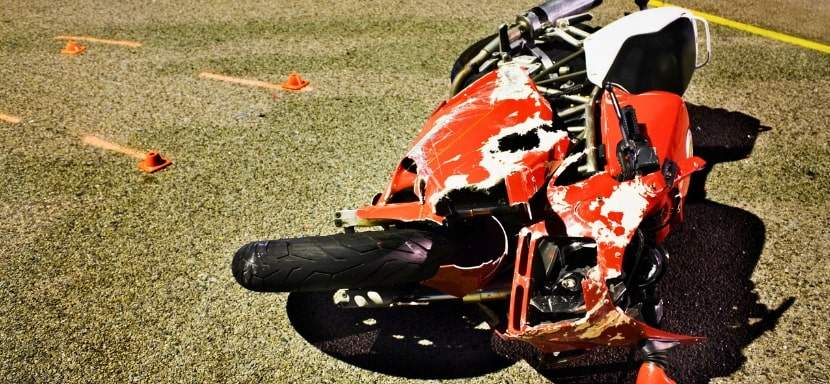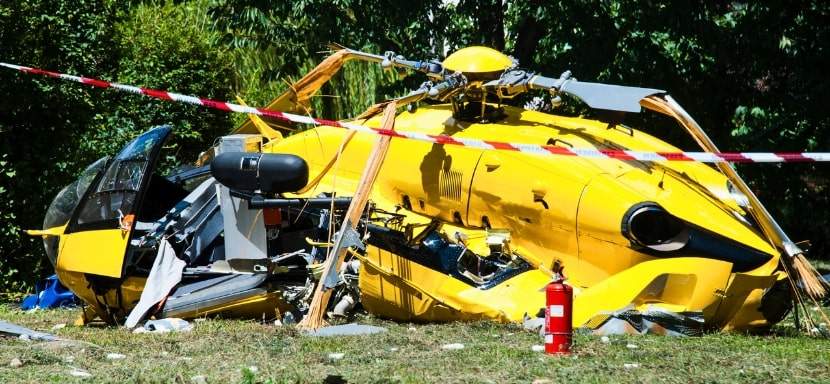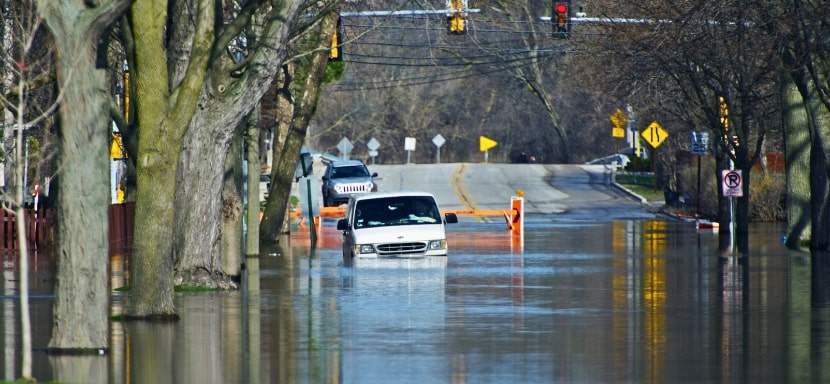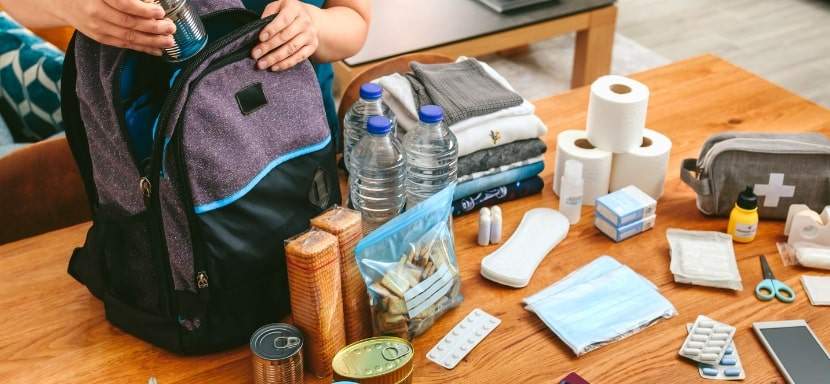How to Survive a Motorcycle Accident

Life on two wheels is exhilarating, but let’s not sugarcoat it—motorcycle wrecks are a real risk. Whether you’re a seasoned rider or just learning, knowing how to survive a motorcycle wreck is crucial. By preparing beforehand, reacting wisely during the incident, and taking thoughtful recovery steps after, you’ll stack the odds in your favor.
In the broader scope of survival, motorcycle accidents fall under land survival situations, requiring specific strategies to protect yourself and recover effectively. Whether it’s navigating a busy highway after a crash or managing injuries until help arrives, understanding land survival dynamics can make all the difference.
Let’s roll up our sleeves and dive into this guide. Don’t worry; I promise not to bore you. Just the facts, a little wit, and plenty of good advice.
Key Points
- Preparation is vital: Wear proper gear and know your escape routes.
- Stay calm during the wreck: Protect your head and limit movement if injured.
- Recovery matters: Seek medical help, document the incident, and prioritize emotional healing.
The Thrill and the Risk of Riding
There’s no denying the freedom of riding a motorcycle. The wind against your face, the engine’s roar—it’s pure magic. But every rider knows there’s a flip side to this dream. One unexpected curve, a distracted driver, or an oil-slicked road can get dicey fast.
Understanding how to survive a motorcycle wreck isn’t just about surviving physically. It’s about being prepared, acting wisely, and recovering fully.
What Are Your Odds of a Motorcycle Accident?
The chances of being involved in a motorcycle accident depend on several factors, including riding habits, experience, environmental conditions, and the behavior of other drivers on the road. While motorcycles account for only a tiny percentage of total vehicles on the road, the statistics paint a stark picture of the risks involved:
General Statistics
- Motorcycle riders are 28 times more likely to die in a crash per mile traveled compared to passenger car occupants, according to the National Highway Traffic Safety Administration (NHTSA).
- Approximately 80% of reported motorcycle crashes result in injury or death, compared to about 20% for cars, due to the lack of a protective enclosure.
Factors That Affect the Risk
- Rider Experience: New or inexperienced riders are at a higher risk of accidents. Inadequate training and poor judgment often lead to preventable crashes.
- Road and Weather Conditions: Wet or uneven roads, poor visibility, or slippery surfaces significantly increase the likelihood of losing control.
- Other Drivers: One of the leading causes of motorcycle accidents is car drivers’ failure to see or yield to motorcyclists.
- Speeding and Alcohol Use: Speeding and riding under the influence are significant contributors to fatal motorcycle crashes.
- Protective Gear: Not wearing a helmet or appropriate riding gear can turn what might have been a minor incident into a life-threatening accident.
Estimating Personal Risk
Your chances of being in a motorcycle accident depend mainly on your riding style and the precautions you take. Riders who:
- Stay alert and ride defensively
- Avoid speeding and distractions
- Wear proper safety gear
- Take advanced safety courses
10 Quick Tips to Survive a Motorcycle Accident
Motorcycle accidents are scary, but knowing what to do can make a life-saving difference. Preparation, quick thinking, and proper actions can improve your chances of coming out safely.
Here are ten essential tips to help you survive a motorcycle accident:
- Always Wear Protective Gear: Invest in a DOT-approved helmet, sturdy gloves, jackets, and boots to reduce injury risk.
- Keep Your Bike Maintained: Regularly check your brakes, tires, and lights to avoid mechanical failures on the road.
- Ride Defensively: Assume that other drivers might not see you and keep a safe following distance.
- Stay Calm in an Emergency: In a crash, focus on protecting your head and rolling with the fall rather than fighting it.
- Avoid Sudden Movements Post-Crash: If injured, stay still and wait for help to avoid worsening your condition.
- Carry an Emergency Kit: A small first-aid kit, reflective vest, and flashlight can be invaluable.
- Be Visible: Wear bright or reflective clothing and keep your headlights on to increase your visibility.
- Know Escape Routes: Scan the road ahead and plan for safe spaces to swerve or stop if needed.
- Call for Help Immediately: After an accident, contact emergency services and alert nearby traffic to avoid further danger.
- Get Proper Training: Advanced motorcycle safety courses teach critical skills for avoiding and surviving crashes.
How to Prepare Before a Motorcycle Wreck
Preparation is your best defense against the unexpected. While no one plans to be in a motorcycle wreck, taking the proper precautions beforehand can significantly reduce the risk of severe injury and even save your life. From wearing proper gear to honing defensive riding skills, here’s how to set yourself up for safety on the road.
Gear Up for Safety
Riding without proper gear is like skydiving without a parachute—it won’t end well. Essential gear includes:
- Helmet: DOT-approved or ECE-certified. It’s your lifeline.
- Jacket and Pants: Abrasion-resistant materials like Kevlar or leather.
- Gloves: Protect your hands and ensure a firm grip.
- Boots: Sturdy footwear that covers your ankles.
Invest in quality gear. It’s not just about looking cool—it’s about staying alive.
Stay Sharp with Defensive Riding
Keep your eyes on the road, anticipate dangers, and always leave yourself an escape route. Practice these habits:
- Maintain a safe following distance.
- Use your mirrors and check blind spots.
- Ride sober. Alcohol and motorcycles are a dangerous cocktail.
Did You Know?
Motorcycle accidents are more likely to occur on short trips of less than five miles, often near the rider’s home. This is due to a false sense of security on familiar roads, where riders are less cautious, combined with frequent stops and intersections where many collisions happen. Staying vigilant, even on local errands, can help prevent accidents.
What to Do During a Motorcycle Wreck
When a motorcycle wreck happens, every second counts. Your immediate actions can determine your injuries’ seriousness and whether you stay out of further danger. Staying calm, protecting vital areas, and assessing your surroundings are critical steps to getting through the chaos safely.
Stay Calm in the Chaos
Easier said than done, right? But keeping your wits about you can make all the difference. Here’s how:
- Brace for Impact: Keep your head tucked in and try to roll rather than skid.
- Protect Your Limbs: Avoid stretching your arms out to break a fall. This reduces the risk of fractures.
Assess the Situation
If you’re conscious, quickly assess:
- Are you still in danger (e.g., oncoming traffic)?
- Can you safely move? If not, stay put to avoid worsening injuries.
Signal for help if possible. A reflective vest or emergency whistle can come in handy here.
Post-Wreck: Immediate Steps to Take
Surviving the initial crash is just the beginning. What you do immediately after a motorcycle wreck can make a huge difference in your recovery and safety. From seeking medical attention to documenting the scene, these steps will help you stay protected and get the help you need.
Seek Medical Attention
Even if you feel fine, internal injuries might be lurking. Always get checked out. Key steps include:
- Calling emergency services.
- Staying still if you suspect spinal injuries.
Your health is more important than your motorcycle.
Document the Incident
When safe, collect evidence for insurance and legal purposes:
- Photos of the scene and your injuries.
- Contact information of witnesses.
- A written account of what happened while it’s fresh in your mind.
This information will be critical for claims or lawsuits.
The Road to Recovery
Recovering from a motorcycle wreck is a journey that goes beyond physical healing. It’s about regaining confidence, addressing emotional scars, and rebuilding your strength. With the proper care and mindset, you can overcome the setbacks and return to doing what you love.
Physical Healing
Injuries from motorcycle wrecks can range from minor bruises to severe trauma. Follow your doctor’s advice religiously, and don’t skip physical therapy.
Emotional Recovery
Wrecks can leave mental scars. Consider talking to a therapist or joining a support group. It’s okay to feel shaken—just don’t let fear rob you of the joy of riding again.
Essential Tips for Preventing Future Wrecks
The best way to survive a motorcycle wreck is to avoid one altogether. You can significantly reduce your risk by adopting smart riding habits, maintaining your bike, and staying alert on the road.
- Stay Visible: Wear bright or reflective clothing and always use your headlights, even during the day, to ensure other drivers see you.
- Monitor Weather Conditions: Avoid riding in heavy rain, snow, or fog, as poor visibility and slick roads increase the risk of accidents.
- Use Defensive Riding Techniques: Always assume other drivers might not see you and anticipate their actions to stay one step ahead.
- Keep a Safe Following Distance: Leave enough space between you and the vehicle ahead to react safely to sudden stops or obstacles.
- Avoid Distractions: Stay focused on the road and avoid using devices or anything else that distracts you from riding.
FAQs
How can I avoid a motorcycle wreck?
Always wear protective gear, stay alert, and maintain a safe following distance. Defensive riding is your best shield.
What should I do if I can’t move after a wreck?
Stay still, call for help, and try to signal your location to passersby.
Is it worth riding again after a major wreck?
Yes, if you’re physically and emotionally ready. Take your time to heal, and don’t rush back onto the road.
Can a helmet save your life?
Absolutely. Helmets reduce the risk of fatal head injuries by up to 37%.
What’s the best way to calm anxiety after a wreck?
Seek professional help and talk to fellow riders who’ve experienced similar incidents. Over time, confidence will rebuild.
How do I handle insurance after a wreck?
Contact your provider immediately, provide all documentation, and don’t admit fault prematurely.
Conclusion: Surviving a Motorcycle Wreck
Motorcycle wrecks are frightening, but surviving one isn’t about luck—it’s about preparation, quick thinking, and determination. Gear up wisely, keep your wits about you, and don’t skimp on recovery.
Riding is a passion worth pursuing, and you can do it safely with the right approach.
Uncommon Facts About Motorcycle Accidents You Didn’t Know
Some statistics and insights regarding motorcycle accidents go beyond the usual warnings. These surprising facts can shed light on lesser-known risks and patterns, helping riders make more informed decisions on the road.
- Most Accidents Happen on Short Trips: Many motorcycle accidents occur within 5 miles of the rider’s home, where familiarity can lead to complacency.
- Left Turns Are a Major Hazard: Over 40% of motorcycle crashes involve a car turning left in front of an oncoming bike, highlighting the importance of anticipating driver actions.
- Sundays Are Riskier Than Weekdays: Weekend rides, particularly on Sundays, see higher accident rates due to increased recreational riding and relaxed driving behavior.
- Color Matters: Brightly colored motorcycles, such as yellow or orange, are less likely to be involved in accidents than darker bikes that blend into the road.
- Lower Speeds Aren’t Always Safer: Surprisingly, many severe accidents occur at speeds under 30 mph, often at intersections where sudden stops or turns create dangerous situations.
- Helmets Drastically Cut Fatalities: Riders wearing helmets reduce their risk of a fatal head injury by 37%, yet some still opt to ride without one.
- Summer Months Are the Most Dangerous: Most motorcycle accidents occur during the summer, with June through August being the riskiest months due to increased riding and road activity.
- Single-Vehicle Crashes Are Common: Nearly one-third of all motorcycle accidents involve no other vehicle, and they are often caused by losing control or poor road conditions.
More Air, Land & Sea Scenarios
How to Survive a Flash Flood While Driving
Surviving a flash flood while driving requires quick thinking, calmness, and a plan. This guide walks…
How to Survive a Hot Air Balloon Crash
Hot air balloon rides can be magical, with breathtaking views and a serene, floating sensation. But as…
How to Survive a Helicopter Crash
If you ever find yourself in a helicopter plummeting toward the ground, the odds can feel stacked…
How to Survive Being Stuck in an Airport
Travelers love airports, right? You walk in with dreams of quick security checks, ample seating, and maybe…
How to Survive Jet Lag
We’ve all been there: you board a plane full of excitement, jet off to a far-flung destination, and…
Recent Survival Posts
How to Survive a Layoff
Layoffs feel personal—even when they’re not. One day, you’re responding to Slack messages and forwarding…
How to Survive a Drug Test
I never imagined I’d be so emotionally invested in a paper cup. But there I was, standing under the fluorescent…
How to Survive an Interrogation
If you’ve ever been caught in the crosshairs of an overly enthusiastic mall cop or stared down by someone…
How to Survive a Nightclub Shooting
Nightclubs pulse with life—lights flashing, music pounding, bodies packed tight on the dance floor. It’s a place to…
How to Survive a Bachelor Party
A bachelor party is a delicate mix of celebration, chaos, and questionable decision-making, wrapped…
More Air, Land, and Sea Survival Scenarios

How to Survive a Hot Air Balloon Crash
Hot air balloon rides can be magical, with breathtaking views and a serene, floating sensation. But as with any adventure, things can go awry. A hot air balloon crash is not a common air survival scenario, yet understanding how to respond effectively can make all the...

How to Survive a Helicopter Crash
If you ever find yourself in a helicopter plummeting toward the ground, the odds can feel stacked against you. You picture fiery explosions, wild spinning blades, and—worst of all—your life flashing before your eyes. But here’s the thing: helicopter crashes are...

How to Survive Being Stuck in an Airport
Travelers love airports, right? You walk in with dreams of quick security checks, ample seating, and maybe a lounge with bottomless snacks. But what if your dream turns into a drawn-out nightmare, and you're stuck there for hours? Or worse, overnight. We've all been...

How to Survive Jet Lag
We’ve all been there: you board a plane full of excitement, jet off to a far-flung destination, and when you arrive, you feel like you’ve been hit by a bus. This, my friends, is jet lag. A cruel reminder that while airplanes can soar at 600 mph, our bodies are...

How to Survive a Car Submersion
Car accidents can happen at any time, and one of the most frightening scenarios is when a car is submerged in water. Knowing how to react in such situations can differentiate between life and death. My guide will walk you through the steps necessary to survive a car...
More Survival Scenarios

How to Survive a Layoff
When the Floor Falls Out: The Reality of a Layoff Layoffs feel personal—even when they're not. One day, you're responding to Slack messages and forwarding emails. Next, you're staring at your monitor as it logs you out... for good. Whether it's a restructuring, a...

How to Survive a Drug Test
The Cup, The Room, The Truth I never imagined I’d be so emotionally invested in a paper cup. But there I was, standing under the fluorescent hum of a strip-mall clinic, trying to recall the last time I ate a poppy seed bagel. That’s the thing about drug tests—they...

How to Survive an Interrogation
If you've ever been caught in the crosshairs of an overly enthusiastic mall cop or stared down by someone in a uniform with a clipboard and a glare, you’ve felt it — the chilly fingers of interrogation anxiety. And while most of us imagine interrogation scenes as...

How to Survive a Nightclub Shooting
Nightclubs pulse with life—lights flashing, music pounding, bodies packed tight on the dance floor. It’s a place to escape, feel the rhythm, and lose yourself in the crowd. But that same energy can turn deadly in seconds, transforming a night of fun into one of the...

How to Survive a Bachelor Party
A bachelor party is a delicate mix of celebration, chaos, and questionable decision-making, wrapped in the noble intention of sending the groom off into married life with a night he’ll (hopefully) remember. It’s a ritual as old as time—well, as old as men deciding...

How to Survive Your First Time at the Gym
Walking into a gym for the first time can feel like stepping into an alien world. The machines hum with purpose, the regulars move confidently, and you’re left standing there, clutching your water bottle, wondering whether you’re in the right place—or on the right...

How to Survive a Worldwide Communications Breakdown
Imagine waking up to silence. Your phone doesn’t buzz, your email won’t load, and even your local radio station crackles with static. A worldwide communications breakdown has hit. What next? For many, this doomsday scenario may sound like the opening lines of a...

How to Survive a Flash Flood While Driving
Surviving a flash flood while driving requires quick thinking, calmness, and a solid plan to ensure your safety. Preparation can make all the difference between a close call and a catastrophe in emergencies like this. This guide provides practical advice to protect...

How to Build an Emergency Kit
Emergencies don’t knock politely at the door. They barge in, uninvited, like a distant relative with a penchant for drama, turning your world upside down without warning. Whether it’s a power outage, a natural disaster, or an unexpected evacuation, the key to staying...

How to Protect Yourself From Insects in the Wild
There’s nothing like being out in the wild—birdsong echoing through the trees, the fresh scent of earth, and a deep sense of peace that makes you think, “Ah, this is what life is about.” But then comes the buzzing. Mosquitoes, ticks, and flies swoop in like uninvited...
